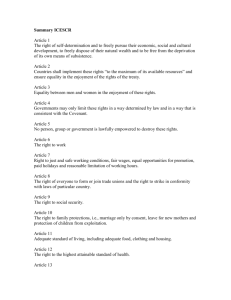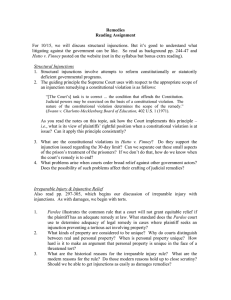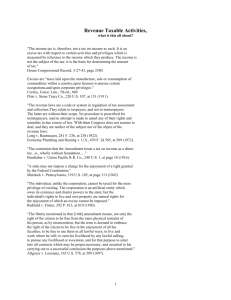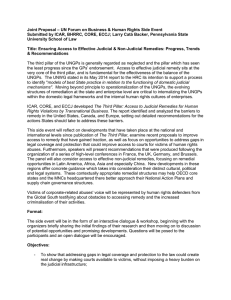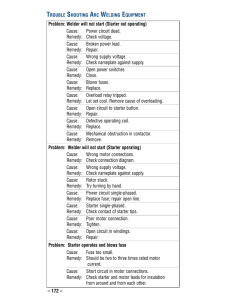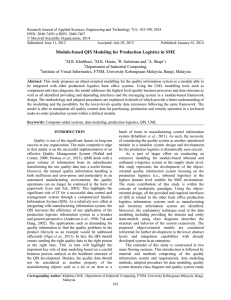EFFECTIVE ACCESS TO HUMAN RIGHTS Dr Therese Comodini Cachia
advertisement
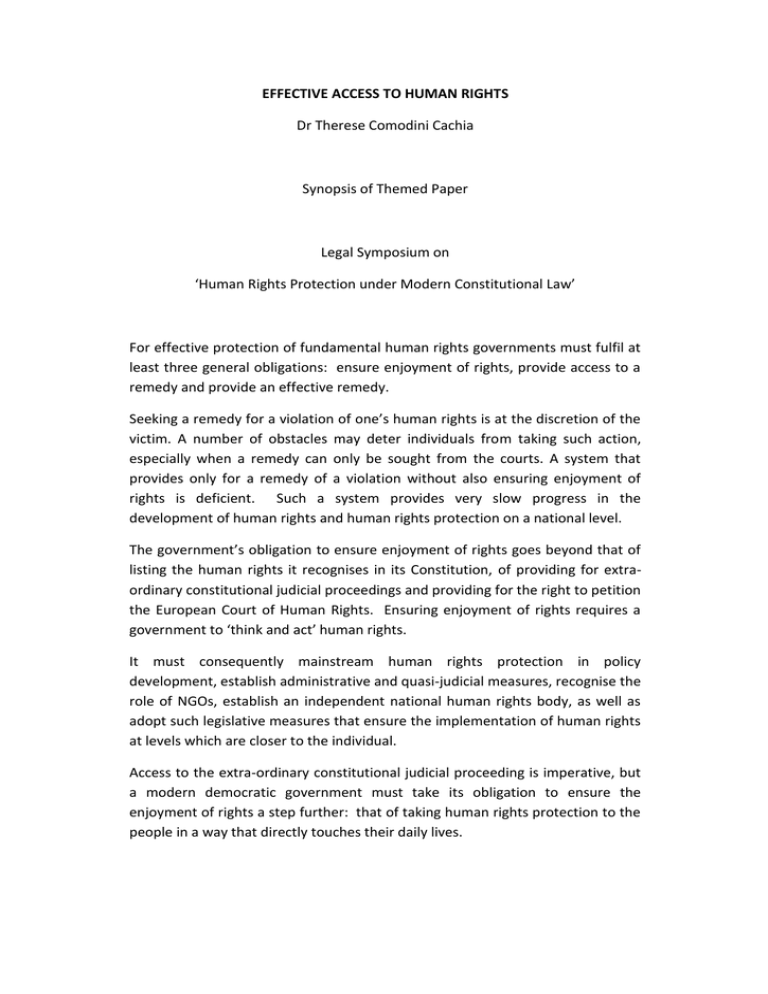
EFFECTIVE ACCESS TO HUMAN RIGHTS Dr Therese Comodini Cachia Synopsis of Themed Paper Legal Symposium on ‘Human Rights Protection under Modern Constitutional Law’ For effective protection of fundamental human rights governments must fulfil at least three general obligations: ensure enjoyment of rights, provide access to a remedy and provide an effective remedy. Seeking a remedy for a violation of one’s human rights is at the discretion of the victim. A number of obstacles may deter individuals from taking such action, especially when a remedy can only be sought from the courts. A system that provides only for a remedy of a violation without also ensuring enjoyment of rights is deficient. Such a system provides very slow progress in the development of human rights and human rights protection on a national level. The government’s obligation to ensure enjoyment of rights goes beyond that of listing the human rights it recognises in its Constitution, of providing for extraordinary constitutional judicial proceedings and providing for the right to petition the European Court of Human Rights. Ensuring enjoyment of rights requires a government to ‘think and act’ human rights. It must consequently mainstream human rights protection in policy development, establish administrative and quasi-judicial measures, recognise the role of NGOs, establish an independent national human rights body, as well as adopt such legislative measures that ensure the implementation of human rights at levels which are closer to the individual. Access to the extra-ordinary constitutional judicial proceeding is imperative, but a modern democratic government must take its obligation to ensure the enjoyment of rights a step further: that of taking human rights protection to the people in a way that directly touches their daily lives.




